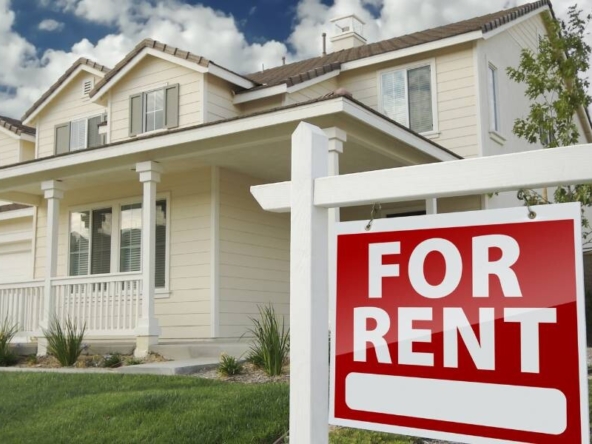When you’re a property owner, managing your rental finances effectively should be high on your agenda. A comprehensive system can assist in staying ahead of expenses or tax obligations. You need strategies that facilitate sound budgeting and timely payments for repair costs and utilities.
The following key pointers can help create a framework to organize, simplify, and potentially enhance financial returns from rentals.
Understanding Rental Property Finances
As a real estate investor, you’ve made a bold decision to explore the promising world of rental properties. Knowing how to effectively manage your rental property finances will lead you on the path toward success in this arena.
Choose an appropriate structure for your business entity. Options include sole proprietorship, partnership, or limited liability corporation, each with distinct risks and rewards.
Your second step should be creating clear boundaries between personal and rental-related finances. Never intertwine them, as it can cause confusion later down the line. Growing skillfully in financial management means understanding that revenues are generally simple, usually from monthly rent payments.
However, expenses may vary widely depending on maintenance needs or unexpected repairs. An effective technique is documenting projected versus actual income and expenses monthly throughout all stages of ownership—no doubt an integral part of maintaining solid fiscal health within any thriving enterprise.
Developing a Financial Plan
Keeping accurate records forms the backbone of managing rental property finances. Make use of reliable software to automate your record-keeping tasks. There are numerous affordable online options that can manage rent collection, track expenses, and generate financial reports in real-time. Additionally, budgeting for unexpected costs should also be considered. This may include sudden repairs or vacancies.
Set aside a small portion of rent each month towards an emergency fund. Consider including all utilities in the monthly lease, if possible, on utility bills, as it provides simplicity on both ends with one bill rather than several individual ones.
Have you considered renters insurance? Encourage tenants to invest in coverage so damage-related costs won’t weigh heavily on your pocket later down the line.
Ensuring that tenants make their rent payments on time is essential. This can be done by adding late fee clauses into leases and providing simple payment methods for tenants, such as digital payment methods. It is important to consider these tips, as they may help prevent potential issues from becoming unmanageable.
Collecting and Tracking Income
Consider the power of technology when tracking your rental income. Embrace digital solutions like apps and software that streamline collecting rent. Seek platforms offering automatic reminders to tenants about upcoming payments and instant payment options.
With such a system in place, you can significantly reduce late or missed rents. Documentation becomes easier with most financial data accessible with just a few clicks. It is, therefore, essential to keep a close eye on expenditures to operate your rental business efficiently. Aside from gathering rental revenue, it is crucial to meticulously manage expenses as well.
A tool that lets you record these outflows systematically will make managing them less daunting while providing transparency, which is essential in this business! Breakdowns of each investment should be readily available so decisions based on spending are informed and rational.
Remember, not all items can be read directly off your bank statement – that’s where accurate documentation comes into play!
Creating a Maintenance Budget
When you think about creating a maintenance budget, consider it as navigational planning. The daily care of your property signifies current expenses or operating costs associated with routines like banking and insurance payments. These day-to-day outlays may also cover professional fees such as those for legal advice or bookkeeping services.
Aside from these ongoing costs, imagine future financial requirements linked to physical assets in terms of capital expenditures (CAPEX). Your capital expenditure plans will detail the funds set aside for major improvements or new projects directly influencing your real estate properties.
Landlords should be aware that operational and long-term budgets require attention. Hired managers usually only focus on recurrent spending. However, all of these elements may be combined in one comprehensive fiscal proposal, such as past business records, vendor contracts, and other items.
Having an insightful view of these OPEX and CAPEX metrics can be beneficial when securing loans for larger investment undertakings.
Tax Considerations for Landlords
When managing your rental property finances in Dallas, Texas, it’s crucial to take taxation into account. You are obligated to report tenant income to the appropriate authorities, such as the Internal Revenue Service (IRS). Frequently asked questions often revolve around which expenses you can deduct.
If you own a single rental property in Dallas, you can deduct vehicle expenses related to transporting materials or tools for repairs. If you own multiple properties, you can also claim expenses for overseeing repairs and collecting rent. However, please note that airfare costs incurred for property visits in another state are not eligible for deductions.
Expenses related to mortgage interest rates, insurance payments, utility bills, and condo association dues are deductible regardless of whether your property is occupied or vacant.
For tenants, it’s important to claim expenses associated with shared common spaces, such as bathrooms or kitchens, based on the percentage of usage by tenants. However, if you’re renting rooms below Fair Market Value (FMV), you are not required to report income.
Audit Processes to Ensure Accuracy
Establishing regular audit processes can significantly safeguard the financial health of your rental business. Think of an audit as essentially a methodical examination to assure accuracy in your records and transactions.
Firstly, consider conducting internal audits regularly within your management team. This keeps everyone accountable while minimizing errors or fraudulent activities that can harm your enterprise. Secondly, consider engaging external auditors annually for unbiased scrutiny.
They thoroughly evaluate the accounting practices you apply and how they comply with standard laws or regulations, so there are no unwanted surprises down the line. Lastly, remember to document every transaction diligently! Receipts help trace back income sources, and invoices clarify expense details when confusion arises.
Remember, these steps are not superfluous. They are necessary habits that form part of a comprehensive strategy. This strategy will ensure long-term stability in managing rental property finances optimally. It will also prevent unnecessary losses due to inadequate attention paid to auditing processes, resulting in inaccurate reporting.
Wrap up your rental property finances with ease. Stay ahead by keeping a keen eye on possible tax deductions. Leverage any rent increase without losing tenants to maintain steady income growth.
Always reserve funds for unexpected expenses such as maintenance or vacancy in your properties.





